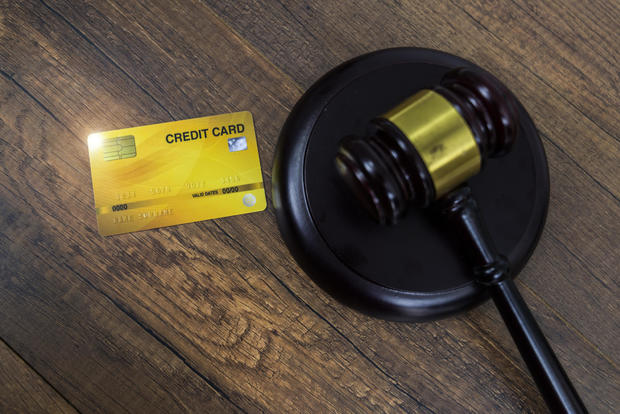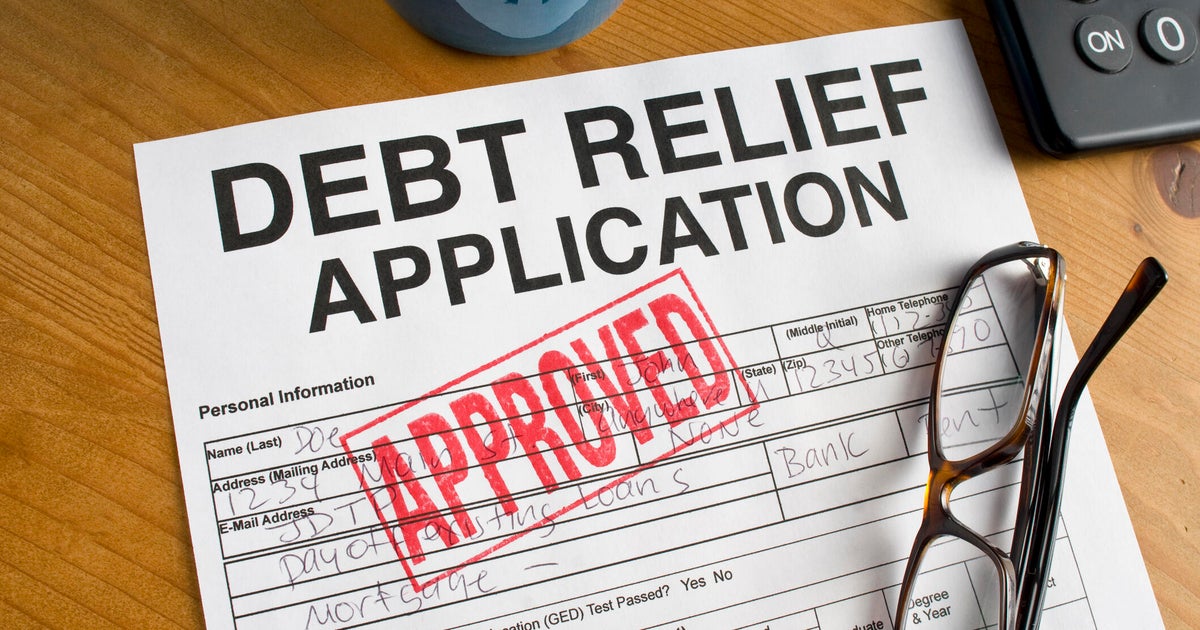4 ways to settle credit card debt after a lawsuit is filed
The current economic climate, marked by issues like high inflation and elevated interest rates, has led to a concerning rise in credit card delinquencies and maxed-out credit cards. And, in many ways, that makes sense. With credit card rates now averaging over 21% and the cost of gas, housing and groceries climbing, many cardholders' finances are being stretched thin and it's becoming increasingly difficult for people to keep up with monthly payments.
But falling behind on credit card bills can have big (and expensive) repercussions, including penalty rates and fees that drive up the cost of your credit card balances — in addition to compounding interest charges. And, if your card payments are seriously delinquent, the penalties can be even more severe. For example, if you fall significantly behind on your credit card payments, your credit card issuers have the option to file a lawsuit to try and recoup the outstanding debt.
Facing a lawsuit from a credit card company can feel like a dire situation, and in many cases, it is. But the good news is that if you're facing these or similar circumstances, you may still have options for settling your credit card debt, even after a lawsuit has been filed.
Dealing with high credit card debt? Find out more about your debt relief options here.
4 ways to settle credit card debt after a lawsuit is filed
If you want to try and settle your delinquent credit card debt after being served with a lawsuit, here are some options worth considering:
Utilize the services offered by a debt relief company
One potential avenue for settling credit card debt after a lawsuit has been filed is to work with a reputable debt relief company to do so. The benefit to working with these companies is that they specialize in negotiating with creditors on behalf of consumers, and the goal is typically to try and settle debts for a fraction of the original amount owed. So, these companies are generally well-versed in the best methods for trying to settle your credit card debt, no matter the circumstances.
Debt relief companies charge a fee for their services, which is typically a percentage of the total debt after it's been negotiated and settled. While this option may seem costly on the surface, it can be a viable solution for those who are overwhelmed by the legal and financial issues they're facing.
Learn more about how the right debt relief plan can help you now.
Negotiate a payment plan or settlement directly with the card issuer
If you're facing a credit card lawsuit, you also have the option to try and negotiate a settlement or payment plan directly with the credit card issuer or the collection agency representing them. This approach can be challenging, as the creditors you owe money to may be less willing to negotiate once legal action has been taken, but it may still be worth exploring if you think you can negotiate successfully with the card companies you owe money to.
After all, while the lawsuit can complicate the process, some creditors may be open to accepting a lump-sum settlement or a structured payment plan that fits within your financial means if it means avoiding further steps in the legal process. And, if you're able to utilize effective negotiation skills and have a clear understanding of your rights as a consumer, you may be able to increase the chances of reaching a favorable agreement.
Hire an attorney who's skilled in credit card issues and debt settlement
If you feel out of depth or are facing a particularly complex legal situation, hiring an attorney who specializes in credit card issues and debt settlement tactics can be a valuable investment. An experienced attorney can provide guidance on the legal process, represent your interests in court (should it come to that) and, perhaps most importantly, negotiate effectively with the creditors you are being sued by.
While legal representation can be costly, especially when you're facing financial hardship, it may ultimately save time, reduce stress and potentially result in a more favorable outcome than attempting to navigate the legal system alone. So, if you can free up room in your budget to pay for one, this may be a route worth considering to try and settle your debt after a lawsuit is filed.
File for bankruptcy
In some cases, filing for bankruptcy may be the most appropriate solution for settling your credit card debt after a lawsuit has been filed. Bankruptcy can provide a fresh start by discharging certain types of debt, including credit card balances, while also offering protection from creditor harassment and further legal action.
It is important to note, though, that bankruptcy should be considered a last resort, as it can have long-lasting impacts on your credit score and financial future. And, not all types of debt are eligible for discharge through bankruptcy. Certain assets may also need to be liquidated to satisfy creditors.
The bottom line
While facing a lawsuit from a credit card issuer can be a stressful and overwhelming experience, it is crucial to remember that you may still have options for resolving the situation. Whether it's seeking the assistance of a debt relief company, negotiating directly with your creditors, hiring the right legal representation or considering bankruptcy, understanding these options can empower you to take control of your financial situation. No matter what route you ultimately take, though, it is essential to act promptly and seek professional guidance when necessary, as delaying action or ignoring legal proceedings can lead to further complications.






